LAST AND FIRST MEN (2017)
Two billion years ahead of us, a future race of humans finds itself on the verge of extinction. Almost all that is left in the world are lone and surreal monuments, beaming their message into the wilderness.
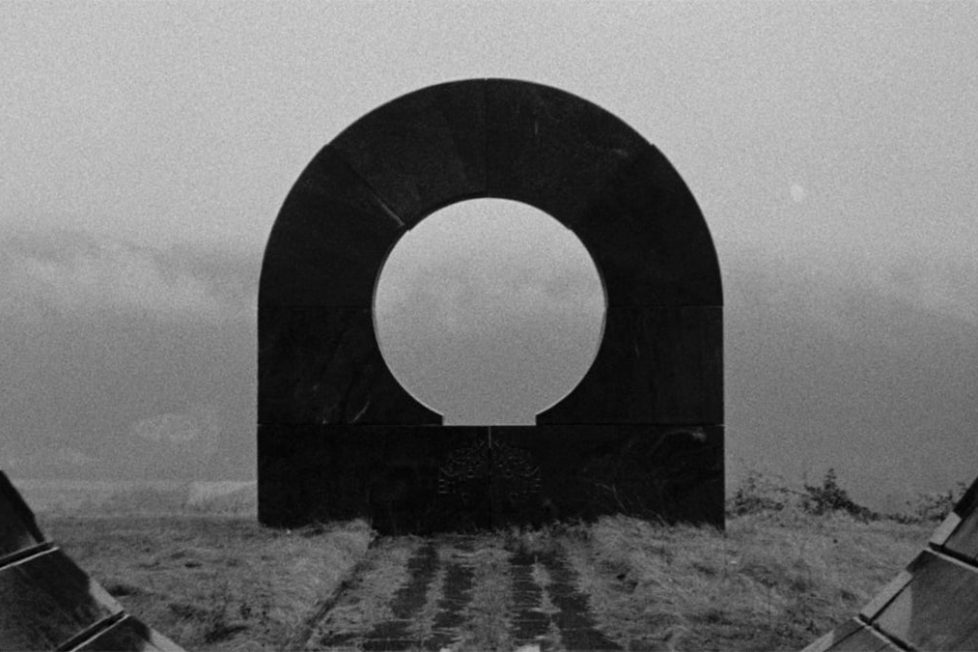
Two billion years ahead of us, a future race of humans finds itself on the verge of extinction. Almost all that is left in the world are lone and surreal monuments, beaming their message into the wilderness.


Olaf Stapledon’s groundbreaking 1930 science fiction novel, Last and First Men: A Story of the Near and Far Future, has long been considered unfilmable. Yet Icelandic composer Jóhann Jóhannsson—best known for his collaborations with Denis Villeneuve on Arrival (2016) and Prisoners (2013)), who died in 2018—managed to do exactly that with a minimalist yet memorable adaptation of a sci-fi classic.
Posthumously released to video-on-demand (VOD) earlier this month, the film centres on a message from two billion years in the future, delivered by the disembodied voice of Tilda Swinton acting as the spokesperson for the last of humanity, the 18th species of mankind, facing extinction.
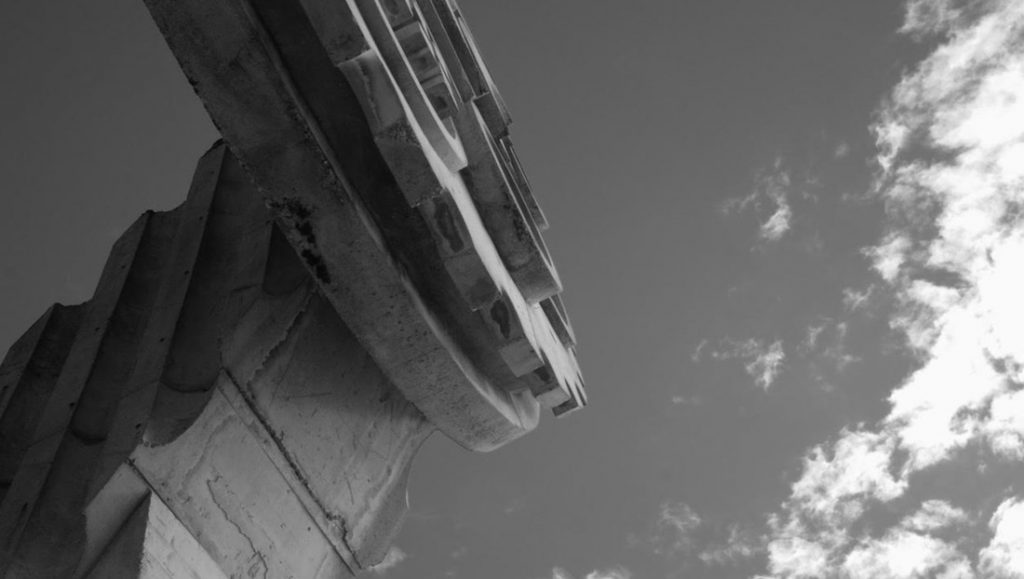
In the place of actors or any sort of recognisable plot, audiences are instead presented with something more abstract: 70-minutes of shots of real-life brutalist architecture in the former Yugoslavia. Shot in 16mm black-and-white film stock and accompanied by a haunting orchestral soundtrack with electronic elements and atmospheric, harmonic choirs, the film, despite its focus on historic monuments and use of black-and-white, transports us to an unrecognisable future and falls somewhere in-between 2001: A Space Odyssey (1968) and The Seventh Seal (1957).
Swinton’s narration takes us on a journey from the present day to her species’ future, through which mankind has evolved from what we know today to a humanoid race that can communicate telepathically and possess eyes which are attuned to stargazing. Maturity from birth to adult takes thousands of years in this advanced race of humans, yet despite their highly-evolved nature, there’s one thing which they can’t escape: the rapid and deadly expansion of the sun which their home planet orbits.
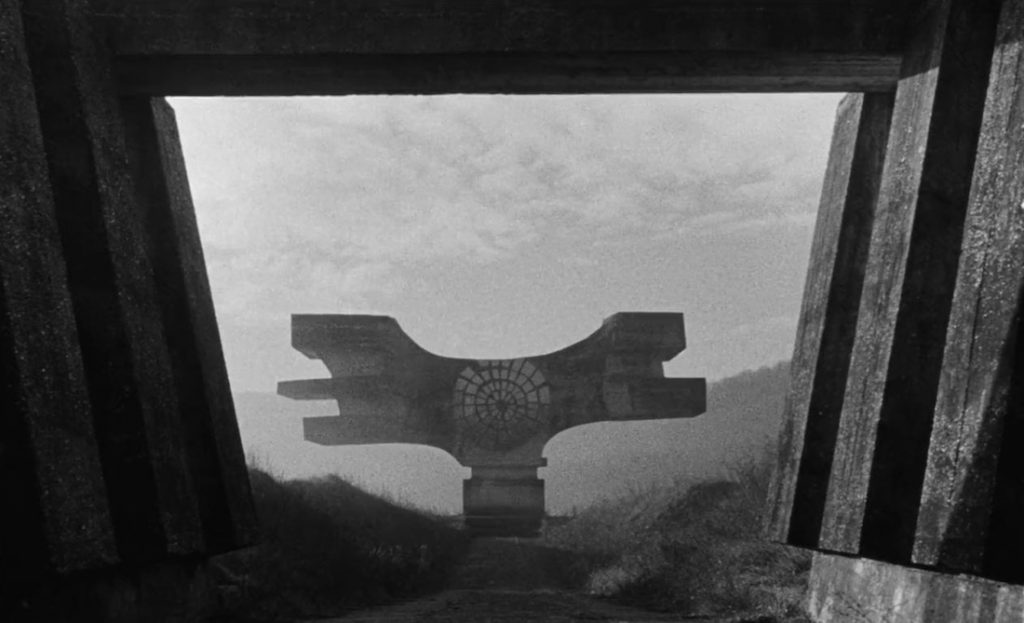
The result is a meditation on the mortality of humanity, memory and loss, which is at times more optimistic and whimsical but feels overwhelmingly gloomy given the morbid cinematography and soundtrack—scored, of course, by Jóhannsson himself. “Humankind did not choose decent suicide before the degeneration of our society began,” is just one example of Swinton’s narration which makes one wonder how modern-day mankind will ever overcome the obstacles it faces if, in two billion years, our highly-evolved and advanced selves cannot escape their own certain doom.
Although Jóhannsson may be more well known for his work in films directed by Villeneuve, his score for Last and First Men is much more ethereal and ambient. It’s as if he’s seen into the future and knows that it’s mostly bleak, and translated this into what might be his most accomplished work.
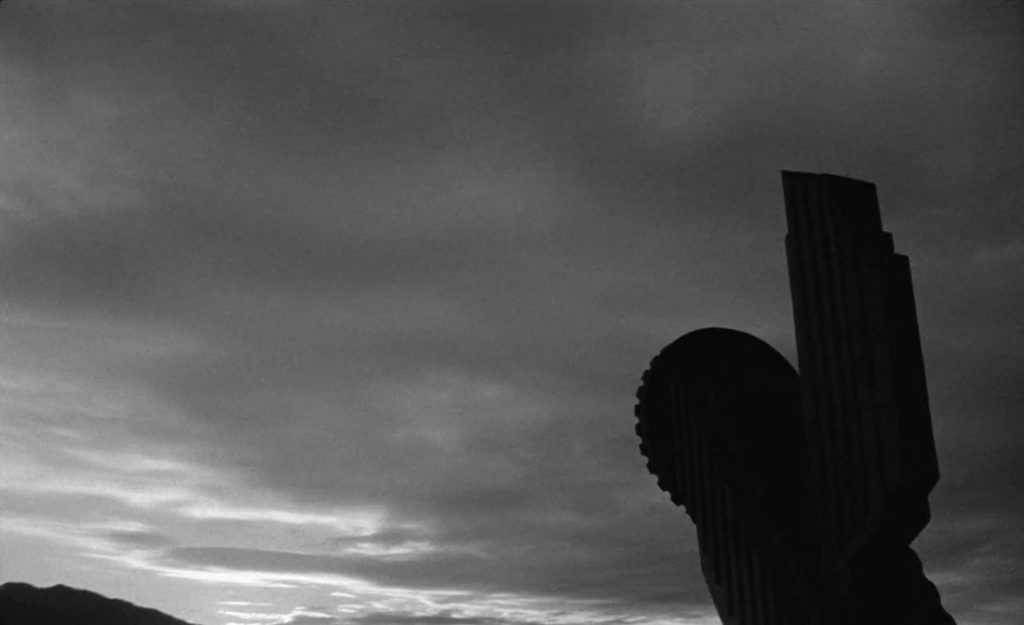
The film may be slow and largely unentertaining (although entertainment is clearly not this work of art’s purpose), but when one considers it was originally performed live in a number of global cities, it’s easier to imagine this would be a more absorbing and altogether impressive experience than being forced to watch it at home. As such, this is a film which deserves the biggest screen and best quality speakers possible. Perhaps it would be worth waiting for cinemas to fully reopen before catching this online in order to fully appreciate its creator’s work.
Last and First Men is, quite literally, a haunting experience over each of its measured chapters charting the ages and death of humanity. The fact this film was posthumously released after Jóhannsson’s death adds a further layer of pathos; within the film may be a message from the future, but the film itself is a message from beyond the grave.
ICELAND | 2017 | 70 MINUTES | 1.66:1 | BLACK & WHITE | ENGLISH

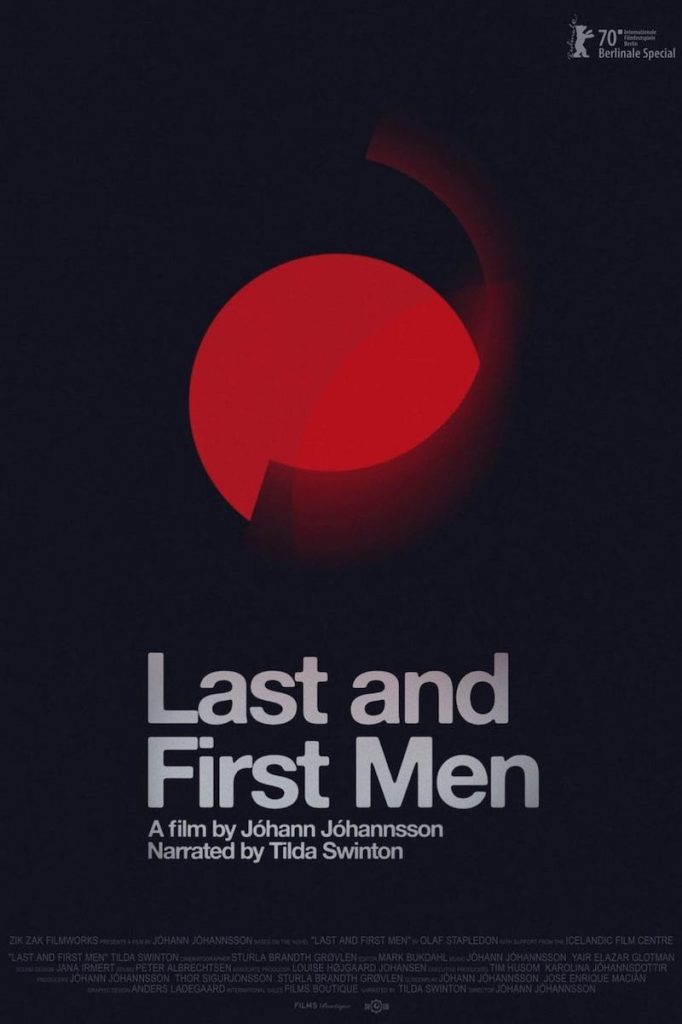
director: Jóhann Jóhannsson.
writer: Jóhann Jóhannsson (based on the novel by Olaf Stapledon).
voice: Tilda Swinton.
